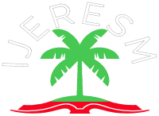Social Vices: Causes and Counselling Remedies
Sekh Nazimul Islam
Ummi Sarki Abubakar
Dr. Miswar Bello
Ph.D Scholar, Psychology, Lincoln University College, Malaysia
Post Graduate Student, Education and Counselling, Bayero University Kano, Nigeria
Deputy Provost, Education and Counselling, Sa’adatu Rimi College of Education, Nigeria
Abstract: Global increase in social problems both reflect and contribute to national and international tensions. The social vices problem is a key concern in many developing countries, where many types of vices are not known. It has worsened into a current global issue which represents human undesirable side of social growth. This undesirable fact is an unfortunate and has developed many security encounters facing the modern society. In this paper, some contemporary social vices have been discussed in the light of their causes, consequences, and possible counselling remedies. This paper argues that examination malpractice, drug abuse, child abuse, domestic violence and political thuggery among other contemporary social vices have created havoc and have contributed greatly to the slow pace in Nigeria. The major causes which include unemployment, poverty, peer influence, students’ poor reading habit, quick success syndrome and lack of marital counselling with their effects were discussed. It has been established in the course of this study that the problem of social vices, is a symptom of society which is embroiled in moral decadence. Realizing the havoc which social vices have wrecked on individuals and the society at large, all hands must be on deck to combat the menace. However, to curb this menace, possible counselling remedies like Rational Emotive Therapy, Client-Centred therapy, Gestalt Therapy, Group Therapy, and family therapy were proffered to serve as a panacea which will stem the tide of social vices and foster rapid development. It was recommended that government and stakeholders should collaborate and ensure pre-marital counselling, marital counselling, drug abuse counselling, crisis counselling, sex counselling, counselling with families concerning children, vocational/career counselling, educational counselling as well as counselling delinquents are emphasized and recommended to curb the menace so as to promote individual, social, political, moral, educational and economic development.
Keywords: Child Abuse, Counselling, Domestic Violence, Drug Abuse, Social vices.
References:
- Udebhulu, M., “Globalisation and social change: A Sociological viewpoint. State and society,” Interdisciplinary Journal Nigeria sociology society, vol. 1(1), pp. 233-242, 2009.
- Chukwuemeka, E. E. & Agbara, V. N. “Niger Delta youth restiveness and socio-economic development of Nigeria,” Educational Research and Reviews, vol 5 (7), pp.400 – 407, 2010.
- Ajiboye et al., “Perceived Solutions to Youth Restiveness by Guidance Counsellors in kwara state, Nigeria,” Asia Pacific Journal of multidisciplinary Research, vol. 4(4), pp.105-111, 2016.
- Ariyo, B. (2017). Unemployment: major Cause of social Vices. www.swiftnews.com
- Jointheir, O. (2016). Social Vices in Higher Institutions in Nigeria. www.teampaperwarehouse.com
- Umaru, H., “Examination Malpractice: Challenges to Educational Development,” Wakajes, vol.12 (1&2), pp.149-154, 2005.
- Hiko, M.A. (2008). Examination Malpractice: Causes and Implications. A paper presented at the Occasion of 2007/2008 Session Orientation for 100 level Students, 11th edition.
- Mahmud, H.J. (2009). Examinations and Examination Ethics in our School. A paper presented at training workshop organized by Education Resource Centre, under Ministry of Education Katsina.
- Finley, L. (2013). Encyclopedia of Domestic Violence and Abuse. ABC-CLIO p.163. Archived from the original January. 2017.
- Roberts, A. R. (2015). Battered Women and their Families: Intervention Strategies and treatment programs. (3rd ed.) New York.
- Ortese, P.T (2004). Counselling against political thuggery in Nigeria’s nascent Democracy in the Journal of Counselling & Development: Counselling association of Nigeria (CASSON). Benue State Chapter 1(1) 133-142
- Samson, O. A and Saawuan, A. T, “Political Thuggery and Insecurity in Benue State: Counselling Intervention,”. JORIND, 11(1), 2013.
- Ukwu, J. W. (2016). Political Violence in Nigeria: causes and Possible Solutions. Retrieved from www.info@corp.naija.com.
- Dishion ,T., Kavanagh, K.A, Nelson, S., Schneiger, A.K. and Kaufman,N.(2002). Preventing Early Adolescent Substance Use: A family Centred strategy for the Public Middle School. Preventgion Science 3(3): 191-202, 2002.
- Sambo, S. (2016). Understanding Guidance and Counselling. Kaduna: Ahmadu Bello university Press limited, Zaria.
- Ibia, E. I. (1999). Sociological foundation of Nigerian education. Calabar: Cats Publishers.
- Famoyin, V. O. (2007). Foundation of economy of west Africa. Ilesha: Illesanmi Press.
- Ndolovu, T.S. (2000). The Need for Pre-Marital Counselling in Combating Domestic Violence in Medadeni Area: Zulu Land. Department of Arts and social Work, University of Zulu Land.
- Egbule, J.F. (2009). Psychology of adjustment and Crisis Counselling. A diagnosis of crisis reactions, Human trauma, psychological stress disorders and their Therapeutic treatment approaches. Ivy International training and Counselling Centre (IITCC), Abraka.
- Richard, S.S. (2012). Theories of Psychotherapy and Counselling: Concepts and cases, 5th Edition. United States of America: Linda Schrelber–Ganster Publishers, Brooks/cole.
- Sambo, S. (2016). Understanding Guidance and Counselling. Kaduna: Ahmadu Bello university Press limited, Zaria.
- Ellis, A. (1987). The use of rational humorous songs in psychotherapy. In W. E. Fry, Jr., & W. A. Salameh (Eds.), Handbook of humor and psychotherapy (pp.265–286). Sarasota, FL: Professional Resource Exchange.
- Ellis, A. (1996a). Better, deeper, and more enduring brief therapy: The rational emotive behavior therapy approach. New York: Brunner/Mazel.
- Ellis, A. (1996b). My philosophy of psychotherapy. New York: Albert Ellis Institute for Rational Emotive Behaviour Therapy.
- Ellis, A. (1996c). The humanisms of rational emotive behavior therapy and other cognitive behavior therapies. Journal of Humanistic Education and Development. Vol 35 pp 69–88.
- Dryden, W. & Neenan, M. (2004). Counselling individuals: A rational emotive behavioural handbook (4th ed.). London: Whurr
- Nichols, M. P. (2008). Family therapy: Concepts and methods (8th ed.). Boston: Allyn & Bacon.
